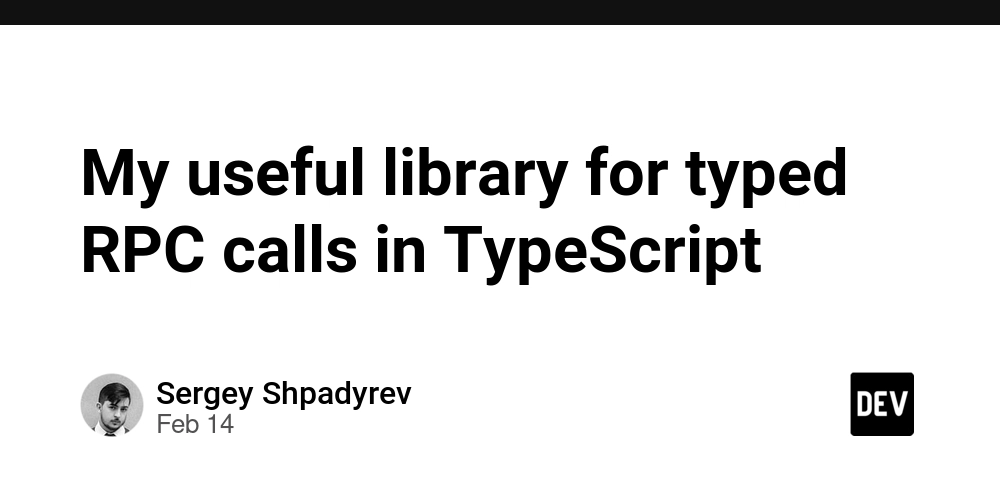AI-Generated Code vs. Learning to Code: The Future of Software Development & Critical Thinking
A few weeks ago, I was addressing a college audience when the topic of AI in software development sparked an intense debate during a panel discussion. A founder on panel said: “AI can generate working software, students need not learn to code?” That question led to a heated discussion. Some argued that critical thinking and problem-solving skills will become obsolete. Others believed that understanding the logic behind the code will always be necessary, even in an AI-driven future. As an engineer who has worked on large-scale cloud systems and open-source projects, I believe the truth lies somewhere in between. AI-generated code is a powerful tool, but without human intervention, it lacks context, ethics, and deeper reasoning. This article explores: The state of AI-generated code today. How AI affects critical thinking and problem-solving. Intellectual property (IP) concerns of AI-generated code. What the future of coding looks like. The Current State of AI-Generated Code AI-assisted coding tools like GitHub Copilot, Amazon CodeWhisperer, ChatGPT, and Tabnine can: ✅ Autocomplete functions and boilerplate code. ✅ Refactor and optimize existing code. ✅ Generate entire modules based on natural language prompts. ✅ Assist in debugging, security fixes, and documentation. But can AI really think critically? Let’s analyze a simple example. The Role of Critical Thinking in AI-Assisted Code Let’s say we ask an AI tool to generate a FastAPI endpoint for retrieving user details from a database. Prompt to AI: "Generate a FastAPI endpoint that fetches user details from a database." AI-Generated Code (GitHub Copilot Example) from fastapi import FastAPI, Depends from sqlalchemy.orm import Session from database import SessionLocal from models import User app = FastAPI() def get_db(): db = SessionLocal() try: yield db finally: db.close() @app.get("/user/{user_id}") def read_user(user_id: int, db: Session = Depends(get_db)): user = db.query(User).filter(User.id == user_id).first() if user is None: return {"error": "User not found"} return user At first glance, the code looks functional. But here’s where critical thinking comes in: Issue Why It’s a Problem Critical Thinking Fix Security Risk No authentication—anyone can fetch user details. Add OAuth2 or API key authentication. Data Validation No check if user_id is valid. Use Pydantic for input validation. Error Handling Returns generic error message. Raise HTTP exceptions with detailed logs. Performance Direct database queries may slow down for large users. Use caching (Redis) for frequently accessed users. Improved Code with Critical Thinking Applied from fastapi import FastAPI, Depends, HTTPException from sqlalchemy.orm import Session from database import SessionLocal from models import User from auth import get_current_user # Hypothetical auth module app = FastAPI() def get_db(): db = SessionLocal() try: yield db finally: db.close() @app.get("/user/{user_id}") def read_user(user_id: int, current_user=Depends(get_current_user), db: Session = Depends(get_db)): if not isinstance(user_id, int) or user_id

A few weeks ago, I was addressing a college audience when the topic of AI in software development sparked an intense debate during a panel discussion.
A founder on panel said:
“AI can generate working software, students need not learn to code?”
That question led to a heated discussion. Some argued that critical thinking and problem-solving skills will become obsolete. Others believed that understanding the logic behind the code will always be necessary, even in an AI-driven future.
As an engineer who has worked on large-scale cloud systems and open-source projects, I believe the truth lies somewhere in between. AI-generated code is a powerful tool, but without human intervention, it lacks context, ethics, and deeper reasoning.
This article explores:
- The state of AI-generated code today.
- How AI affects critical thinking and problem-solving.
- Intellectual property (IP) concerns of AI-generated code.
- What the future of coding looks like.
The Current State of AI-Generated Code
AI-assisted coding tools like GitHub Copilot, Amazon CodeWhisperer, ChatGPT, and Tabnine can:
✅ Autocomplete functions and boilerplate code.
✅ Refactor and optimize existing code.
✅ Generate entire modules based on natural language prompts.
✅ Assist in debugging, security fixes, and documentation.
But can AI really think critically? Let’s analyze a simple example.
The Role of Critical Thinking in AI-Assisted Code
Let’s say we ask an AI tool to generate a FastAPI endpoint for retrieving user details from a database.
Prompt to AI:
"Generate a FastAPI endpoint that fetches user details from a database."
AI-Generated Code (GitHub Copilot Example)
from fastapi import FastAPI, Depends
from sqlalchemy.orm import Session
from database import SessionLocal
from models import User
app = FastAPI()
def get_db():
db = SessionLocal()
try:
yield db
finally:
db.close()
@app.get("/user/{user_id}")
def read_user(user_id: int, db: Session = Depends(get_db)):
user = db.query(User).filter(User.id == user_id).first()
if user is None:
return {"error": "User not found"}
return user
At first glance, the code looks functional. But here’s where critical thinking comes in:
| Issue | Why It’s a Problem | Critical Thinking Fix |
|---|---|---|
| Security Risk | No authentication—anyone can fetch user details. | Add OAuth2 or API key authentication. |
| Data Validation | No check if user_id is valid. |
Use Pydantic for input validation. |
| Error Handling | Returns generic error message. | Raise HTTP exceptions with detailed logs. |
| Performance | Direct database queries may slow down for large users. | Use caching (Redis) for frequently accessed users. |
Improved Code with Critical Thinking Applied
from fastapi import FastAPI, Depends, HTTPException
from sqlalchemy.orm import Session
from database import SessionLocal
from models import User
from auth import get_current_user # Hypothetical auth module
app = FastAPI()
def get_db():
db = SessionLocal()
try:
yield db
finally:
db.close()
@app.get("/user/{user_id}")
def read_user(user_id: int, current_user=Depends(get_current_user), db: Session = Depends(get_db)):
if not isinstance(user_id, int) or user_id < 1:
raise HTTPException(status_code=400, detail="Invalid user ID")
user = db.query(User).filter(User.id == user_id).one_or_none()
if not user:
raise HTTPException(status_code=404, detail="User not found")
return {"id": user.id, "name": user.name, "email": user.email}












































































































































































![[The AI Show Episode 142]: ChatGPT’s New Image Generator, Studio Ghibli Craze and Backlash, Gemini 2.5, OpenAI Academy, 4o Updates, Vibe Marketing & xAI Acquires X](https://www.marketingaiinstitute.com/hubfs/ep%20142%20cover.png)



























































































































![[FREE EBOOKS] The Kubernetes Bible, The Ultimate Linux Shell Scripting Guide & Four More Best Selling Titles](https://www.javacodegeeks.com/wp-content/uploads/2012/12/jcg-logo.jpg)



![From drop-out to software architect with Jason Lengstorf [Podcast #167]](https://cdn.hashnode.com/res/hashnode/image/upload/v1743796461357/f3d19cd7-e6f5-4d7c-8bfc-eb974bc8da68.png?#)






































































































.png?#)




.jpg?#)
































_Christophe_Coat_Alamy.jpg?#)






































































































![Rapidus in Talks With Apple as It Accelerates Toward 2nm Chip Production [Report]](https://www.iclarified.com/images/news/96937/96937/96937-640.jpg)






































































































































![✨ [13] - Setup Layout, Routing, and Stack Navigation in React Native Expo](https://media2.dev.to/dynamic/image/width%3D1000,height%3D500,fit%3Dcover,gravity%3Dauto,format%3Dauto/https:%2F%2Fdev-to-uploads.s3.amazonaws.com%2Fuploads%2Farticles%2Fqfezc6ivwzz8f2a386lw.png)


